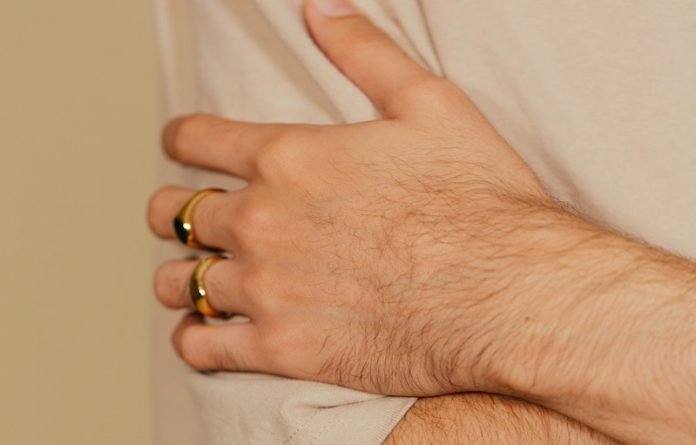
You might have seen the news fans of singer Lewis Capaldi helped him finish a song at a concert this week, after symptoms of his Tourette syndrome suddenly flared up and temporarily prevented him from performing.
So, what is Tourette syndrome and how is it managed?
What is Tourette syndrome?
Named after 19th century researcher Gilles de la Tourette, Tourette syndrome is a neurological or neurodevelopmental condition.
It’s characterised by tics, which are involuntary movements or vocalisations.
Many people have simple tics, especially children. But the official definition of Tourette syndrome is motor and vocal tics nearly every day over more than 12 months.
There are two types of tics: motor tics and vocal tics.
Common motor tics often involve the head and neck. They can include things like:
eye blinking
facial grimacing
jerking the head and neck
mouth movements
shoulder jerks or jerking other parts of the body.
Vocal tics can include:
throat clearing sounds
humming sounds
huffing or grunting
sniffing
high pitched squeals
part of a word or syllable
sometimes whole words or phrases.
Sometimes in more severe cases of Tourette syndrome, people might have more complex tics and more orchestrated sequences of movements.
This can include, for example, turning in a certain direction or tapping something a certain number of times. Often it’s a sequence that feels right for that person, which they have to complete to relieve tension.
Initially there is what we call a “premonitory urge”. It’s like an itch or the feeling you get before you sneeze. There’s a build-up up of tension and it’s relieved by the expression of the tic.
People are often able to recognise this feeling prior to the tic and that’s an important part of tic management.
Tics usually have onset in childhood, typically in the early primary school years, but occasionally later in life.
Tourette syndrome often runs a frustratingly waxing and waning course. There may be periods where it’s not noticed for weeks or even months and then it comes back.
Sometimes tics get worse in response to stress, like the start of a new school term or moving house. Sometimes they get worse for no reason at all.
There can be an element of suggestibility; talking about a tic can bring on that tic.
There’s also a degree of suppressibility. People with tics can either subconsciously or consciously suppress them.
Kids often don’t have many tics at school because they know they might get teased, but after school the parent often sees a lot of tics come flowing out.
People can often camouflage tics. For example, if they have an urge to jerk their arm, they may scratch their chin and transform it into something else. That’s often a part of treatment or a method their team may work with them on.
How is it treated?
Often we don’t need to do anything about Tourette syndrome because it’s not causing problems in terms of a person’s self-esteem or their broader life. They can still hold a pen or a spoon and it’s not affecting their day-to-day function.
Most cases are not severe and the tics don’t need any intervention.
But many kids with Tourette syndrome also have other conditions such as ADHD, OCD and anxiety.
So if the Tourette syndrome isn’t causing harm the paediatrician may be more concerned about treating those issues first.
The marker for Tourette syndrome needing treatment is whether it’s bothering the child.
If it is, we consider what we can do about the tics themselves. They are quite hard to treat.
A psychologist will usually work on general anxiety management strategies, as anxiety can be a significant driver of tics.
There is also a treatment strategy known as comprehensive behavioural intervention for tics, which is a dedicated program to help people manage their tics. But it can be difficult to access due to availability.
There are medications for severe cases but they’re not very effective at reducing tics and can cause side effects.
Why do some people get Tourette syndrome?
We think Tourette is largely genetic.
It’s nothing to do with anything the parents have done or the child has done, and it’s not caused by anything that happened during pregnancy.
It’s not one gene that causes it but rather a combination.
Reducing stigma is key
Tourette syndrome is, by nature, a highly stigmatising condition because at the severe end people can do very unusual things and draw attention to themselves, through no fault of their own, which can cause embarrassment.
One thing we can do for kids, if they are able to, is suggest they go to their school with the support of a carer or parent and talk to classmates about their Tourette.
They explain what it is and why they can’t help it. Often that can lead to more acceptance from other kids.
Most people with Tourette syndrome can live normal lives.
Education is key to reducing stigma. The Tourette Syndrome Association of Australia has some great information and resources.
Written by Daryl Efron. The Conversation.
If you care about nutrition, please read studies about foods that could improve survival in Parkinson’s disease, and vitamin D supplements strongly reduce cancer death.
For more information about nutrition, please see recent studies about plant nutrient that could help reduce high blood pressure, and these antioxidants could help reduce dementia risk.



